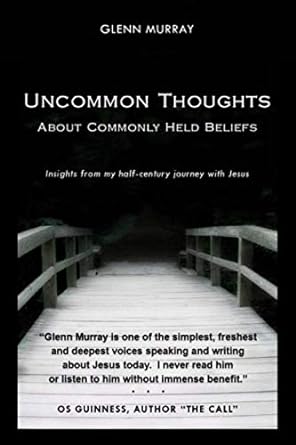Rethinking Love your neighbor as you love yourself
Rethinking the traditional interpretation of Luke 10:25‑37
DISCLAIMER! It is difficult to conceive of a different meaning than I have been taught, but on a recent reading, the following thoughts developed. In the spirit of Acts 17:11 I was trying to carefully understand the parable in context. These ideas are entirely exploratory, tentative and not confidently held, so the purpose of these thoughts is to think them through with my brothers.
I have been taught that the man in the ditch was the neighbor, (i.e., anyone who has a need is our neighbor) but on rethinking this parable, that is not what it teaches. The scribe asked, “Who is MY neighbor” not, “To whom shall I “BE” a neighbor”? Of course, we are to show love, compassion, and mercy to those in need but are we commanded to love them, “AS WE LOVE OURSELVES?” That is reserved for our neighbor, and this parable helps us understand who our neighbor is.
An expert in the law asked Jesus, “Who is MY neighbor?” Jesus answered, “I’ll tell you a story, and you tell ME who your neighbor is? After Jesus told the story, He asked, “Who was a neighbor to the man?” He did not ask who the Samaritans neighbor was, but rather “which one of the three who passed by, was a neighbor of the man in the ditch”? The Pharisee said the Samaritan was the neighbor and Jesus agreed. From the perspective of the man in the ditch, the Levite, and Priest were not his neighbor, so maybe he did not need to, “love them AS he loved himself.”
Application:
Maybe not all people are our neighbors in the sense that we are to, “LOVE THEM AS WE LOVE OURSELVES.” However, if we have a neighbor like the man in the ditch had, we are to “love that person AS we love ourselves.”
This seems to be what the story teaches if interpreted literally. It appears that our neighbor is the person who shows us mercy by pulling us out of a ditch; physically, spiritually, financially or emotionally, etc. These are the people we are to “love, AS we love ourselves.” This makes more sense than everyone in the world is our neighbor and makes it much more achievable. It’s also more conceivable that we can love (“AS WE LOVE OURSELVES”) someone who has helped us in a time of great need. This story teaches that the person in need is the one who is in a position to recognize his or her neighbor.
The statement of Jesus, “Go and do likewise” does confuse us since it seems to indicate that we should “BE” a good neighbor. Indeed, we should BE a neighbor to those around us, but the story was told in response to the question, “who is MY neighbor.” Maybe go and do likewise means, the man who was helped loved his neighbor as he loved himself and we are to do likewise. (i.e., even if he is not of our race) On the other hand, maybe Jesus took this opportunity to help the scribe know who his neighbor is and ALSO to teach that we should help those in need. Whichever way we look at “go and do likewise,” it’s clear that the Samaritan is the neighbor and the man in the ditch should love him as he loves himself.
We call this story the parable of “The GOOD Samaritan” but when Jesus told it, it was simply “a Samaritan.” The translators gave another of Jesus’ parables the title, “The prodigal son.” When Jesus told the story he made no mention of a “prodigal son,” he just said, “There was a man who had two sons.” (Mat. 21:28) If He had given the parable a name, it might have been. “The parable of the loving, waiting, forgiving father.” We have emphasized the son, but Jesus told it to point out the nature of our Heavenly Father.
This interpretation of, “Love your neighbor as yourself,” would not relieve us of our responsibility to love every person we meet. There are many scriptures about loving others, helping the poor, and those in need. The question for this parable is “who are we to love AS we love ourselves?” I am continually open to rethinking my interpretations if it will lead me to a closer following of Jesus. I hope that at the very least, the process of reevaluating our views will make us more confident of our Biblical convictions.
Continue reading